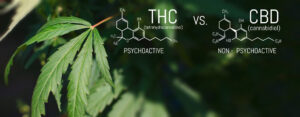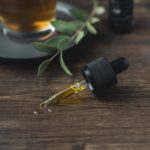Many people have used cannabis for therapeutic purposes over the years while others have used it for recreational purposes. It’s important to understand the fundamentals if this is your first attempt to try cannabis.
The cannabis plant holds hundreds of cannabinoids, but most studies focus on cannabidiol (CBD) and delta-9-tetrahydrocannabinol (THC) due to the growing interest in cannabis’ potential health benefits. CBD and THC are available in various forms, including oils, tinctures, edibles, capsules, gummies, and smokable products. If you want to maximize the effects of consuming THC, consider dabbing as the ideal method. With this in mind, having the right dab rig is a must. Once you’re ready to check out the available options on the market, being familiar with the new portable dab rig features is crucial, so you’ll be on the right track.
As cannabis and marijuana products become legal and widely available in many states, interest in them has grown. Several products containing THC, CBD, or both may aid in treating conditions, such as insomnia, stress, and anxiety, to name a few.
If you’re planning to try out these products soon for their benefits, it’s essential to learn the difference between CBD and THC.
- Sources And Psychoactive Properties Of THC And CBD
CBD is a non-psychoactive, natural substance that will not get you high. It has become a natural form of treatment for some conditions that are usually derived from hemp. THC, the primary psychoactive component in cannabis, triggers the high or euphoric experience associated with marijuana. As a controlled substance, it’s frequently illegal to use in certain states.
Although both CBD and THC are found in both cannabis plants, THC is more abundant in other forms of cannabis whereas CBD is more abundant in hemp. The THC concentration of a cannabis plant must be less than 0.3 percent for it to be recognized as hemp.
CBD isn’t psychoactive because its chemical structure cannot bind effectively to the endocannabinoid system, a unique system responsible for regulating certain functions in the body, such as appetite, sleep, and immune response.
On the other hand, THC is capable of triggering a psychological response via specific receptors in the endocannabinoid system, which is mainly in the central nervous system and the brain. Once these receptors are activated, it brings about the psychoactive effect. Combined with THC, CBD reduces the psychoactive effects, preventing an overly high experience.
Although CBD is derived from either hemp or marijuana, hemp is often the preferred source to avoid the inclusion of high levels of THC. Marijuana is the primary source of THC. When CBD is sourced from marijuana, it’s more likely to contain high levels of THC. Unfortunately, it’s not an appropriate option for people who want to avoid THC consumption.
- Chemical Composition
THC and CBD have a chemical composition comparable to the body’s natural endocannabinoids, which are neurotransmitters that operate in the brain.
Generally, both THC and CBD possess similar structures molecularly but stand out from one another in the molecular arrangement responsible for the distinct effect they can cause. Since they mimic the endocannabinoids, they essentially bind with the receptors to trigger effects in the body.
- Potentially Advantageous Effects
Although research and studies are ongoing on the potential benefits of cannabinoids, particularly CBD and THC, cannabinoids may be helpful for certain conditions, such as anxiety, pain, epilepsy, sleep-related conditions, and movement disorders.
While THC and CBD have similar effects and treat similar conditions, there are some differences you need to be aware of. When it comes to CBD, it’s often the choice to alleviate symptoms associated with depression, seizures, migraines, anxiety, migraines, and post-traumatic stress disorder (PTSD).
In contrast, THC is typically given as the medical form of marijuana to alleviate symptoms of medical conditions, such as insomnia, tremors, pain due to arthritis, and nausea.
- Possible Side Effects
Both CBD and THC may have a few side effects. CBD is generally safe for use and doesn’t have misuse potential. In most cases, if side effects occur, they’re likely due to interactions with other medications the person is using. CBD may also have an impact on liver function and male fertility.
THC consumption can cause temporary side effects, such as red eyes, dry mouth, rapid heart rate, decreased response time, coordination issues, a general high feeling, and memory loss. As long as both THC and CBD are taken in the proper dosage, neither has any obvious side effects that can be considered serious.
- Types And Methods Of Consumption

As for CBD, you can choose from varying forms, such as vaping products, topical products, oils, tinctures, sprays, or capsules. There are edible options as well, such as candies, gummies, and beverages.
If you’re going to try out CBD products for the first time, the formulation should be one of your considerations. If you only want CBD, go for CBD-isolated products. The broad spectrum is likely to include other cannabinoids except for THC. With regard to full-spectrum products, they contain both CBD and THC, along with other cannabinoids.
- Legal Aspects Of CBD Or THC Products
Even before you use either CBD or THC products, one of the important considerations is knowing if it’s legal to use them in your state. Certain states allow medical marijuana and products while some allow the recreational use of marijuana and other products that contain THC.
Although certain CBD products are legal in most states, it’s vital to understand the specific protocols because each state has different rules regarding the use of these products. When a state limits the use of cannabis, it might put a person in legal jeopardy if they try to purchase or use it for medical or other purposes.
Due to the constantly changing laws regarding the use of cannabis and any related products, make it a priority to stay up to date with the laws in your state before using products that contain both CBD and THC.
Final Thoughts
CBD and THC are the main cannabinoids typically present in the cannabis plant, and their popularity has surged due to the potential health benefits. Although both have similarities in inherent composition and conditions they may manage, it’s necessary to know the differences between them. The most significant distinction is that THC can cause a high or euphoric experience whereas CBD has no psychoactive effect. If you decide to use cannabis for the first time, knowing the differences between the two cannabinoids will put you on the right course.
Want to unlock greater wellness?
Listen to our friends over at Wellness Force Podcast to unlock your genetic potential with Dr. Ben Lynch:







 How to Incorporate More Vegan Meals into Your Diet?
How to Incorporate More Vegan Meals into Your Diet?